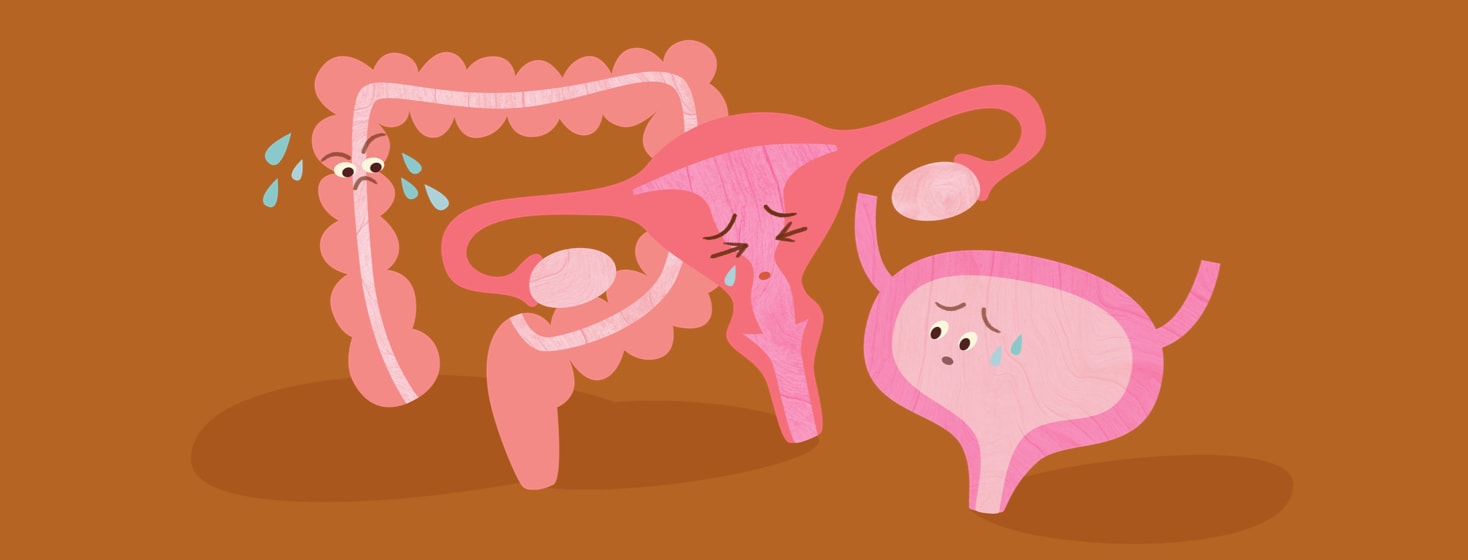What Does Having a Tipped Uterus Mean?
Several years before I had my first lap and had been formally diagnosed with endo, an ultrasound technician told me during a transvaginal ultrasound that I had a tipped uterus. "What does that mean?", I had asked, somewhat alarmed.
Surprise, you have a tipped uterus!
The technician shrugged and said it was no big deal, that a modest percentage of women had them. They just were a mild variation of anatomy. When I got home and looked it up on the internet, I found out that it meant my uterus was tilted back toward the rectum rather than forward towards the bladder. Supposedly, some 20% of women have some kind of tilt in their uterus.
This was not my first ultrasound, but it was my first internal one, if I am remembering correctly. The prior ultrasound tech I had as a teen, and prior docs who conducted
I again asked if that could mean anything. He told me that sometimes, it could cause some mild bladder or bowel issues, including a bit of constipation... as well as some painful sex, especially in certain positions. To the doctor, this might have all been minor, or "no big deal", but to me, it was yet another clue about my body. I had been suffering from IBS issues for years, including intermittent constipation, as well as some painful sex. I wanted answers and this seemed another potential answer, or at least part of a larger answer.
The connection between a tipped uterus and endo
While it's true that some or even potentially many women with a tipped or tilted uterus -also otherwise known as a retroverted uterus- experience no significant symptoms or issues at all, many of us do. This could also be because women with tilted uteri are more likely to have endometriosis (or vice versa). At this point, it seems to be a chicken or egg thing about whether having a tilted uterus makes one more likely to develop endo or if having endo can lead to a tilted uterus... It seems both can sometimes be the case, depending on the patient. But for whatever reason, there does seem to be some link. In my case, I wasn't sure if my tilted uterus was a result of years of endo- especially as the first tech and exams I had it was not mentioned; Perhaps they simply failed to catch it or didn't think it was notable enough to mention, and I have always had a tilted uterus.
How a tipped uterus has affected me
It does help explain some things, though, other than stuff to do with bladder and bowels. For instance, I have always had a very hard time with both tampons and menstrual cups, in terms of getting them to stay in place. I could always feel them and they were always uncomfortable and tended to leak a lot for me; They also seemed to make my cramps worse, too. Women with tilted uteruses can sometimes, or even often, experience such issues with cups and tampons, so I know it wasn't because I was putting them in wrong. I also feel better knowing that certain sex positions hurt not because I have some kind of hangup, but because of the placement of my uterus; As a result, I am better about using positions or modifications to positions that are less likely to bump against my uterus, and therefore, makes sex an overall more pleasurable experience for me (and hence, for my partner too).
Next steps
Right now, I am considering taking my uterus out completely due to adenomyosis. However, I will also ask in my surgical consult if there are other options to helping my uterus if I want to postpone a hysterectomy for now.
Do you have a tilted uterus? If so, have you experienced any of the symptoms associated with it, and how have you managed? Answer in the comments section below!

Join the conversation